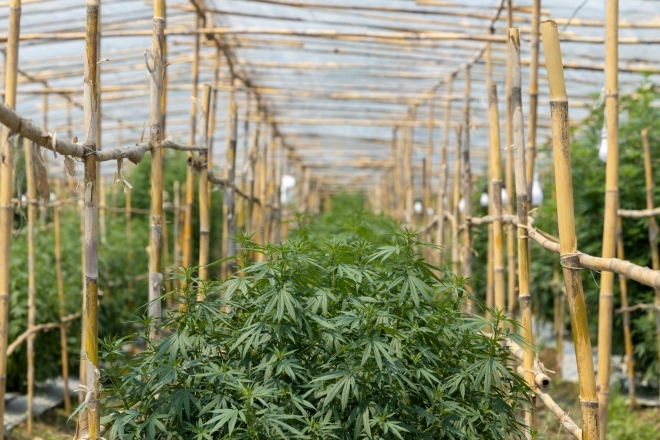Billions in investment at risk as Thailand considers criminalising cannabis
Stakeholders underline potential fallout from increased restrictions against prospects of cannabis sector growth & innovation

Thailand's Health Ministry has raised concerns over the surging costs associated with medical cannabis, leading to a push for stricter regulations.
Since the decriminalisation of cannabis in 2022, medical expenditure on cannabis-related treatments has soared to between THB15 billion (USD407 million) and 21 billion—a stark increase from the THB3,2 billion to THB3,8 billion spent between 2019 and 2021, according to Health Minister Somsak Thepsutin.
He also mentioned that the liberal use of cannabis has led to adverse effects on brain development and mental health, including depression and suicide, with 40% of young Thais addicted to heroin having initially used cannabis.
Prime Minister Srettha Thavisin is now seeking to reclassify cannabis as a Category 5 narcotic, restricting its use for medical and health purposes. This reclassification would criminalise the possession and consumption of cannabis, aligning with Srettha's Pheu Thai Party's hard-line anti-drug campaign.
Thavisin has also set a 90-day deadline for law enforcement to crack down on drug activities in 25 high-risk provinces known as "red zones".
However, this move faces significant opposition from the Hemp and Cannabis Industry Association, which warns that operators in CBD-related industries could lose over THB10 billion in investments if cannabis and hemp are relisted as narcotic plants.
Read this next: Thai Health Ministry greenlights opium & magic mushrooms for medical use
Tossaporn Nilkamhang, president of the association, mentioned a rise in registered CBD products, which increased by 33% in the first quarter of this year to 707 items including food supplements, herbal drinks, herbal drugs, and cosmetics.
"If the government goes ahead with the plan to criminalise cannabis and hemp to curb the abuse, manufacturers and investors of these products could stand to lose over 10 billion Baht of investment," he stated, adding "The move will also affect the confidence of investors in the government's future projects."
Read this next: Hong Kong criminalises CBD in the same class as fentanyl, heroin & cocaine
Urging the government to reconsider, he suggested the Cannabis and Hemp Act as an alternative to criminalisation. This act would control the use of cannabis and hemp while fostering economic growth and preventing abuse.
He stressed that products with less than 0.2% THC should not be classified as drugs.
The potential financial impact is amplified by significant investments in nearly 8,000 dispensaries and numerous consumer-agro firms across Thailand.
Read this next: Are we close to the legalisation of therapeutic psychedelics?
These businesses, thriving under current decriminalisation laws, sell a variety of cannabis products. However, the potential reclassification threatens this growing industry, potentially causing substantial economic losses and reducing investor confidence.
Via: The Nation Thailand
Image: Open Access Government
Amira Waworuntu is Mixmag Asia’s Managing Editor, follow her on Instagram.


